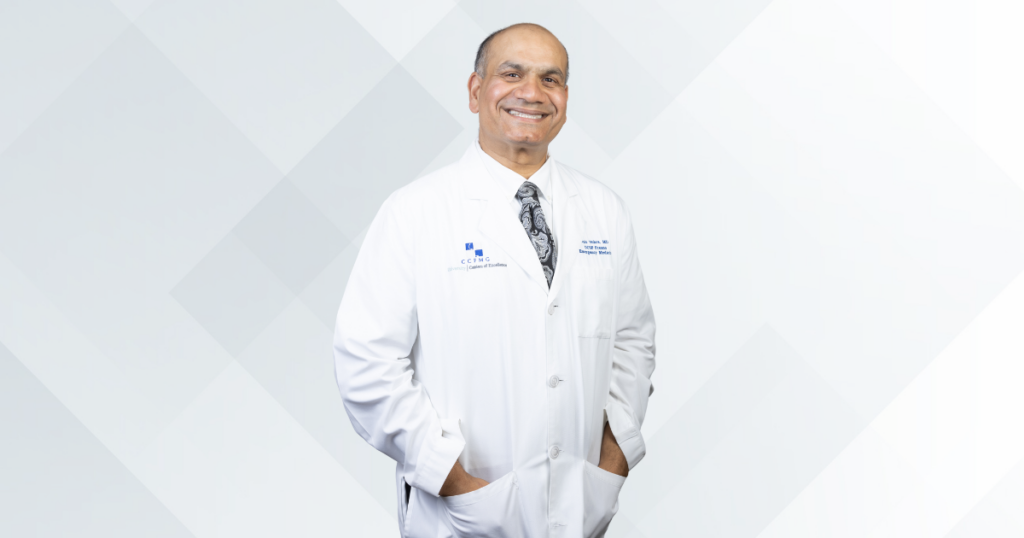Bridging the Gap from the Emergency Department to Long-Term Care for Opioid Use Disorder Patients
On any given day, Rais Vohra, MD, can see dozens of patients in the Community Regional Medical Center Emergency Department as a board-certified emergency medicine and toxicology physician. One type of patient, however, Dr. Vohra has seen over and over again—an Opioid Use Disorder patient going through withdrawals.
The opioid epidemic is just that, an epidemic, it kills an estimated 70,000 people each year in the United States and Dr. Vohra is helping CRMC do its part to curb the number of patients who come in with withdrawal symptoms, and to provide care to help get them off the highly-addictive narcotics.
Dr. Vohra, professor of emergency medicine and clinical pharmacy at UCSF Fresno and Interim Health Officer for the Fresno County Department of Public Health, has been instrumental in helping CRMC become the only Bridge Program Star Site in Fresno County through a grant facilitated by Central California Faculty Medical Group. Being part of the Bridge Program means CRMC offers patients the opportunity to get treatment and help to enter into long-term care for Opioid Use Disorder, and being a Star Site means the entire staff of CRMC is committed to providing this treatment and help 24 hours a day, seven days a week.
“As a Bridge Star Site, there is no wrong door to enter into recovery, and we want people with opioid withdrawal to be able to access evidence based treatment regardless of which department or service they are presenting to,” said Dr. Vohra.
When a patient walks through any door at CRMC suffering from severe withdrawal symptoms, a specially certified physician can prescribe the patient a drug called buprenorphine. This drug helps alleviate many of the symptoms of withdrawal and helps curb cravings, allowing the patient to recover and not feel the need to use the drug again.
Buprenorphine won’t get the patient high, and patients can’t overdose with this drug. Physicians can also give the patient a take-home prescription for this drug, with a few previsions, to hold them over until they get into a long-term treatment program.
Once patients are stable, they are connected with the Bridge Program’s Substance Use Navigator and a social worker. CRMC has a team of Substance Use Navigators. They help patients set up follow-up screenings, research and find a long-term treatment program, and helps patients reach out to facilities to start the process of entering treatment. With this warm handoff, patients are more likely to stay in their treatment program through its completion.
The grant to fund the Bridge Program has allowed Dr. Vohra and many physicians at CRMC help Opioid Use Disorder patients recover from withdrawals and get into long-term treatment. Being a Star Site has shown the commitment from physicians and staff at CRMC to provide treatment to patients 24 hours a day and seven days a week.
“It is so fulfilling as a physician to be able to help someone who feels awful and hopeless and not only help them acutely with their withdrawal but also provide the linkage to care to ensure they stay in recovery long-term,” said Dr. Vohra.
If you or someone you know is struggling with Opioid Use Disorder, the Bridge Program and the staff at CRMC are here to help you find long-term care and treatment. For more information about the Bridge Program, contact Substance Use Navigator Stephanie Garcia Martinez at (559) 803-0799 for the Community Regional Medical Center or Joseph Pool at (559) 269-4079 for the Clovis Community Medical Center.

